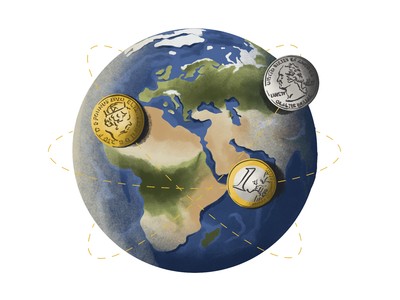Mercifully, the turmoil seen in mid-sized US banks at the end of the previous quarter was largely contained, albeit there were briefly uncomfortable echoes of the global financial crisis of 2008.
Having taken around 400 years to amass £1 trillion of national debt by 2010, the UK government has taken just 13 years to more than double it to an astonishing £2.4 trillion with debt as a percentage of GDP now at over 100% for the first time since 1961. Many observers have been critical of the deeply flawed forecasting models used by the Bank of England which were designed for the period of extended disinflation that started in the early 1990s. In slashing rates to 0.1% at the onset of the lockdown and then pumping billions into the economy, the Bank has lost credibility by carelessly letting the inflation genie out of the bottle and now may be compounding that error by increasing rates into a slowing economy and exacerbating the cost of living crisis.
We are beginning to see the full consequences of the steepest rate hiking cycle in over 40 years with these poor policy decisions resulting in UK inflation remaining stubbornly high whilst falling meaningfully in the US and Europe.
Indeed, in the US, moderating inflation and a better than expected earnings season has propelled the S&P 500 more than 20% from last October's low and, in doing so, has met the traditional definition of it being in a bull market with Apple alone now valued more richly than the entire UK stock market of listed companies put together.
Much of the strength in US equities has come about from the extraordinary advances in Artificial Intelligence (AI) seen in the last few months as it burst on to the mainstream and is already seen as critical technology which will change how many of us live our lives. With this in mind, markets (and wider society) often overestimate short term benefits from new technology whilst underestimating the longer-term impact.
US politicians also added to mid-quarter volatility as they sought to raise the Federal Debt cap for the 78th time since 1960. The usual Mexican stand-off took place, made harder for the Democrats having lost their majority in the House of Representatives, and was eventually resolved before an unimaginable default.
With high interest rates across the world, which are explicitly in place to slow Western economies, bond markets are not surprisingly alluding to economic conditions deteriorating in the coming months. This has led to narrow stock market leadership in which there has been a concentration of stronger performances from only a handful of sectors and companies. As equity investors, we must regularly remind ourselves that over the short-term stock markets may be irrational and unpredictable but over the longer term they reflect the true value that companies create.
Simon Temple-Pedersen, Investment Director
The value of securities and their income can fall as well as rise. Past performance should not be seen as an indication of future results. All views expressed are those of the author and should not be considered a recommendation or solicitation to buy or sell any products or securities. At times, the firm or employees of the firm may have positions in securities discussed. Should any conflict of interest arise, these are managed under conflicts of interest policy, a copy of which is available on request.




